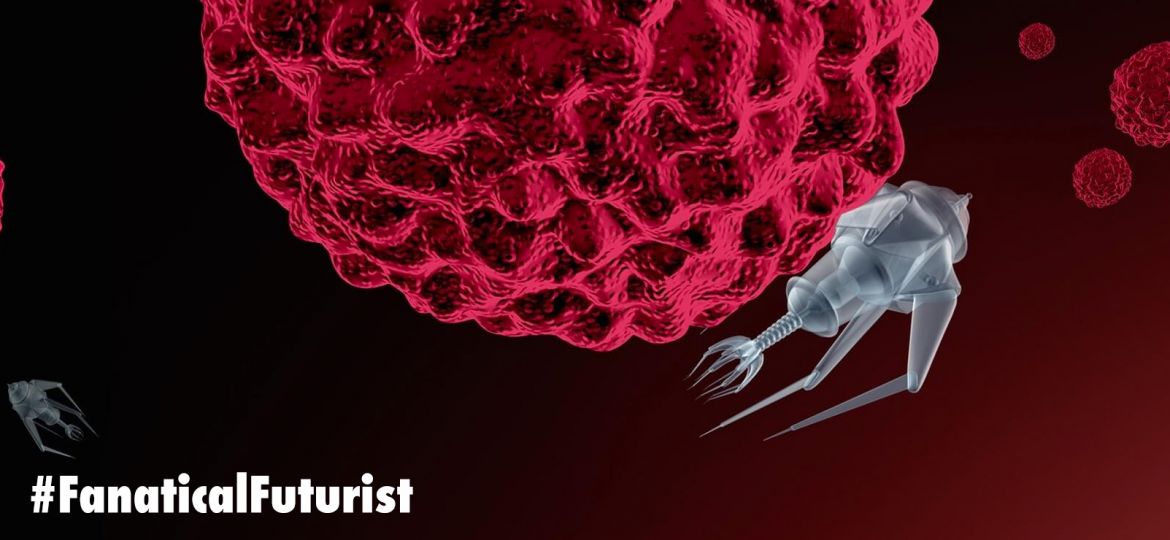
WHY THIS MATTERS IN BRIEF
- In the next two decades or so we will be increasingly exposed to nanobots that can perform extraordinary feats as they move around inside our bodies, but up until now there’s not been any way to track them
The other day I made a Scouts honour pledge to the biologists and doctors among you that I’d write a piece on nanobot GPS tracking , yes, really, so here it is… In the future, if futurists like me are to be believed, hey no smirking at the back, we’re all going be quaffing both brain controlled nanobots and “regular” nanobots, that can perform surgery on us from the inside and identify diseases, like Cancer, before we show any symptoms, with our wine. Or beer. Whatever takes your fancy. However, while having all these little robotic critters roaming around our insides sounds great and all that there’s a problem with this wonderful utopian vision… how on Earth would we keep track of them all?
Well, now thanks to those spiffy guys and gals at Caltech a new chip that’s loaded with sensors and that can ping its location in the body could help us solve that issue, and one day it could be used to help us track our little friends as they meander around our insides in real time.
The gallery was not found!
Open Wide and Swallow
The new chip, which could be put into a Smart Pill that could be swallowed, was inspired by MRI technology, and while we’ve already seen smart pills emerge that track gas concentrations in the intestine, and house tiny cameras, so far noone has created one that can track either itself, or other objects in vitro.
“The dream is that we will have microscale devices that are roaming our bodies and either diagnosing problems or fixing things,” says Azita Emami, co-lead researcher on the study, “but before now, one of the challenges was that it was hard to tell where they are in the body.”
To solve the problem the team developed a device called Addressable Transmitters Operated as Magnetic Spins (ATOMS), and the prototype measures 1.4 sq mm, or about 250 times smaller than a cent, but packed into that tiny space is a magnetic field sensor, integrated antennas, a wireless power source and a location circuit that responds to the changing magnetic field around it to beam out the chip’s location in the body.
“A key principle of MRI is that a magnetic field gradient causes atoms at two different locations to resonate at two different frequencies, making it easy to tell where they are,” says Mikhail Shapiro, co-lead researcher on the project, “we wanted to embody this elegant principle in a compact integrated circuit. The ATOMS devices also resonate at different frequencies depending on where they are in a magnetic field.”
According to the team, it was a challenge to balance the ATOMS prototype’s small size, low power consumption and location pinging accuracy, but in the end, it proved effective in tests in mice.
This early version of the device was mostly a tech demo for the tracking system, but in the long run the chips could be built into other microscale devices patrolling the body for cancer or clogged arteries.
“You could have dozens of microscale devices traveling around the body taking measurements or intervening in disease,” says Shapiro, “these devices can all be identical, but the ATOMS devices would allow you to know where they all are and talk to all of them at once.”
Did he say dozens of devices in our bodies? He’s thinking too small, evidently not a futurist… surely that should be millions, or billions? Anyway, since you’re here, and now that I’ve tempted you with nanobots and booze could I interest you in a genetically modified synthetic beer? It’s on me, enjoy.
















